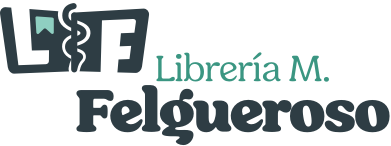Reseña o resumen
Preface Tumor development and progression occur as a result of cumulative acquisition of genetic alterations affecting oncogenes and tumor suppressor genes. As a consequence of these alterations the arising tumor gains some fatal properties such as increased cell proliferation and decreased apoptosis, resulting in a net accumulation of tra- formed cells. Once a critical volume is achieved, lack of oxygen and nutrients limits further growth. To overcome this obstacle, the tumor cells initiate a program focused on the formation of new blood vessels within the host tissue. This process is termed tumor angiogenesis and contributes to the progression of most solid tumors and the formation of metastases. Since its discovery more than 30 years ago by Dr. Judah Folkman, tumor angiog- esis has been proposed as an ideal target for novel tumor therapies. Today the first anti-angiogenic compounds are available for the treatment of patients but their s- cess in the clinic is rather limited when given as monotherapies. This is in contrast to many preclinical results which revealed a much higher efficacy of these therapeutics in appropriate animal models. The reasons for this discrepancy are manifold, one being the existence of more than one angiogenic signaling system capable of driving tumor angiogenesis. Therefore it is no surprise that the inhibition of just one system is not sufficient to block the formation of new blood vessels in patients.
Table of contents (8 chapters)
Tumor Angiogenesis: from Bench to Bedside
Judah Folkman MD
Pages 3-28
Vasculogenesis and Angiogenesis in Development
Dr. Anne Eichmann, Dr. Karine Bouvrée, Dr. Luc Pardanaud
Pages 31-45
Molecular and Cellular Aspects of Heparanase
Neta Ilan PhD, Liat Fux PhD, Michael Elkin PhD, Israel Vlodavsky PhD
Pages 247-272
Inflammation and Angiogenesis: Innate Immune Cells as Modulators of Tumor Vascularization
Dr. MargaretaM. Mueller
Pages 351-362
Metronomic Antiangiogenic Chemotherapy: Questions and Answers
Dr. Robert S. Kerbel, Urban Emmenegger, Shan Man, Raquel Munoz, Francesco Bertolini, Yuval Shared
Pages 593-607
Clinical Development of Sorafenib (BAY 43 9006) VEGFR and RAF Inhibitor
Dr. Dimitris Voliotis, J. Dumas
Pages 655-671
Clinical Development of the VEGFR Signalling Inhibitor AZD2171
PD Dr. Joachim Drevs, Dr. Clemens Unger
Pages 673-688
Thalidomide in Multiple Myeloma
PD Dr. Thomas M. Moehler, Dr. Jens Hillengass, PD Dr. Axel Glasmacher, Dr. Hartmut Goldschmidt

